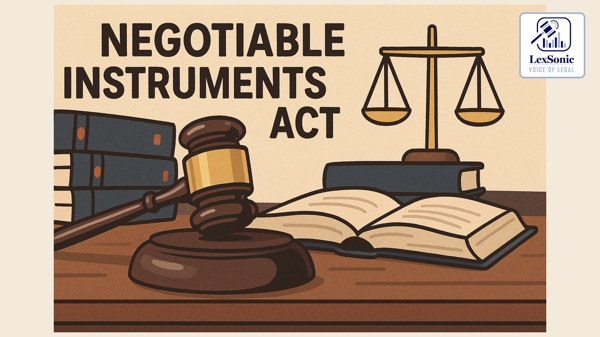Supreme Court Clarifies: Who is Liable When a Company’s Cheque Bounces?
20 December 2024
Negotiable Instruments Act >> Criminal Law
On December 20, 2024, the Supreme Court of India issued a landmark decision concerning liability under Section 138 of the Negotiable Instruments Act, 1881 (NI Act) in the case of Bijoy Kumar Moni v. Paresh Manna & Others (Criminal Appeal No. 5556 of 2024). The issue concerned whether a director of a corporation who signs a check that is returned on the company's behalf can be held personally accountable if the company is not named as an accused party.
The Case's Background:
Bijoy Kumar Moni, the complainant, claimed to have given Paresh Manna, the accused, a total of Rs. 8.45 lakh. In order to pay this back, Manna wrote a check payable to Shilabati Hospital Pvt. Ltd., of which he was a director. Due to inadequate funds, the check bounced when it was presented.
The accused failed to pay back the statutory notice that was delivered. The complainant therefore filed a criminal complaint under Section 138 of the NI Act.

Navigating Through the Courts:
- Trial Court (2017): The offender was found guilty and given a one-year prison sentence and Rs. 10 lakh in compensation.
- The conviction was upheld by the Sessions Court in 2019.
- The conviction was overturned by the Calcutta High Court in 2024, which held that the firm alone could be the primary culprit because the check was written on its behalf. The director was not liable vicariously unless the corporation was arraigned as an accused.
Dissatisfied, the complainant approached the Supreme Court.
Key Legal Issue:
Can a company director who signs a cheque be held personally liable for its dishonour if the company itself is not made an accused?
Analysis of the Supreme Court:
The Court looked at the NI Act's provisions:
- The "drawer" of the check is the sole person covered by Section 138.
- Directors of companies are subject to vicarious culpability under Section 141, however this is only if the firm is charged as the primary perpetrator.
A director or authorized signatory is not the "drawer" of the check, the justices stressed. The firm is still the drawer, and its officers are not liable unless they are arraigned as accused.
The Court reaffirmed that prosecution under Section 138 against directors alone is not maintainable without impleading the company, citing previous decisions such as Aneeta Hada v. Godfather Travels & Tours Pvt. Ltd. and Himanshu v. B. Shivamurthy.
The final judgment:
Since Shilabati Hospital Pvt. Ltd. was not named as an accused party, the Supreme Court supported the Calcutta High Court's ruling and affirmed that Paresh Manna could not be found guilty under Section 138.
The Significance of This:
The corporate personality idea is reaffirmed in this ruling:
- A business is a separate legal entity.
- The firm is liable under Section 138 as the drawer first.
- Only if the corporation is prosecuted can directors or authorized signatories be held vicariously accountable.
For firms and lenders, this ruling emphasizes how crucial it is to make sure that any prosecution for dishonor that involves checks issued by businesses names the company as an accused party; otherwise, the case may fall apart.
Section 138, Negotiable Instruments Act - 1881
Section 141, Negotiable Instruments Act - 1881
Negotiable Instruments Act, 1881
